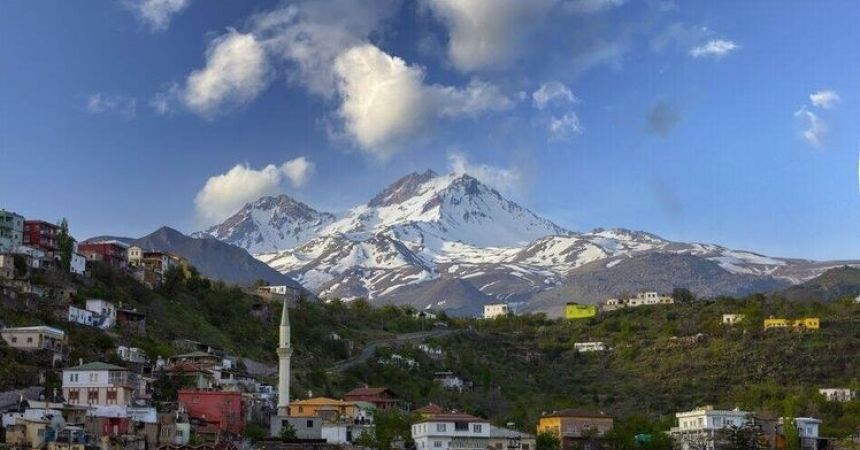
What Is the Best Way to Travel Around Turkey?
Turkey, a land of diverse landscapes and rich history, offers a plethora of experiences for travelers. From the bustling streets of Istanbul to the stunning landscapes of Cappadocia, the ancient ruins of Ephesus, and the turquoise waters of the Mediterranean coast, exploring Turkey requires thoughtful planning and the right mode of transportation. This comprehensive guide will delve into the best ways to travel around Turkey, considering various options to help you make the most of your journey.
Understanding Turkey's Geography
Turkey bridges Europe and Asia, with its diverse regions ranging from bustling cities and historical sites to stunning natural landscapes. The country is roughly divided into several key areas:
- Marmara Region: Includes Istanbul, the country's largest city, and the Sea of Marmara.
- Aegean Region: Known for its ancient ruins, including Ephesus and the beautiful Aegean coast.
- Mediterranean Region: Famous for its stunning beaches and resorts.
- Central Anatolia: Home to cities like Ankara and the unique landscapes of Cappadocia.
- Eastern Anatolia: Known for its rugged terrain and historical sites.
- Southeastern Anatolia: Includes the vibrant city of Gaziantep and the ancient site of Göbekli Tepe.
Transportation Options in Turkey
Car Rental in Turkey
Overview:
- Flexibility: Renting a car gives you the freedom to explore Turkey at your own pace, allowing you to visit remote areas and off-the-beaten-path destinations.
- Road Conditions: Major highways and roads in Turkey are generally well-maintained, though rural and mountainous areas might present challenges.
Pros:
- Independence: Travel on your own schedule and explore less accessible areas like Cappadocia or the Black Sea region.
- Comfort: Enjoy a more private and comfortable travel experience.
Cons:
- Navigation: Turkish road signs are generally in both Turkish and English, but rural areas might have less signage. GPS or a good map is essential.
- Parking: Finding parking in major cities like Istanbul can be challenging and costly.
Tips:
- 4x4 Vehicles: Consider renting a 4x4 if you plan to explore rugged or remote areas.
- Local Traffic Laws: Familiarize yourself with local traffic laws and driving customs. An International Driving Permit (IDP) is required.
Domestic Flights
Overview:
- Efficiency: Turkey has a well-developed network of domestic flights connecting major cities and tourist destinations.
- Airlines: Turkish Airlines, Pegasus Airlines, and AnadoluJet offer frequent flights between cities.
Pros:
- Speed: Quickly travel between distant destinations such as Istanbul and Antalya or Ankara and Cappadocia.
- Convenience: Avoid long road trips and save time.
Cons:
- Cost: Flights can be more expensive than other forms of transportation, especially if booked last minute.
- Airport Procedures: Factor in time for airport security, check-in, and potential delays.
Tips:
- Book in Advance: Secure your flights early to get the best rates.
- Local Transfers: Arrange airport transfers in advance to streamline your travel experience.
Public Transportation
Overview:
- Buses: Turkey has an extensive bus network connecting cities and towns. Major companies include Kamil Koç, Metro Turizm, and Pamukkale Turizm.
- Trains: The Turkish State Railways (TCDD) operates trains connecting major cities, including high-speed trains between Istanbul, Ankara, and Eskişehir.
Pros:
- Cost-Effective: Public buses and trains are generally budget-friendly options for long-distance travel.
- Local Experience: Offers a glimpse into local life and travel customs.
Cons:
- Comfort: Buses can be less comfortable than flying or driving, with potential delays and variable service levels.
- Schedules: Bus and train schedules might not always align with your travel plans.
Tips:
- Advance Booking: Book tickets in advance, especially during peak travel seasons.
- Local Advice: Check schedules and routes with your accommodation or local travel offices for the most up-to-date information.
Taxis and Ride-Sharing
Overview:
- Taxis: Available in cities and towns, and can be hailed on the street or booked through hotels.
- Ride-Sharing Apps: Services like Uber and BiTaksi operate in major cities like Istanbul and Ankara.
Pros:
- Convenience: Useful for short trips within cities or to specific destinations.
- Comfort: Offers a direct and comfortable travel option.
Cons:
- Cost: Can be more expensive than public transportation for longer distances.
- Availability: Ride-sharing services may be limited outside major cities.
Tips:
- Negotiate Fares: For taxis, negotiate the fare or ensure the meter is running.
- Use Apps: For ride-sharing, use apps to get fare estimates and ensure reliable service.
Tours and Guided Travel
Overview:
- Organized Tours: Many travelers opt for Turkey organized tours that include transportation, guides, and planned itineraries with
- Private Guides: Hiring a private guide offers a personalized experience and flexibility.
Pros:
- Comprehensive Experience: Tours often cover major attractions and provide historical context.
- Ease of Travel: Hassle-free travel with transportation and logistics taken care of.
Cons:
- Cost: Generally more expensive than self-guided travel.
- Fixed Itinerary: Tours have set schedules, which can limit spontaneity.

Tips:
- Research: Choose reputable tour operators with positive reviews.
- Customization: Opt for customizable tours if you prefer a more personalized experience.
Traveling Between Major Destinations
Istanbul to Cappadocia
Options:
- Car: The drive from Istanbul to Cappadocia takes about 7-8 hours. The route is scenic but can be long.
- Flight: A flight from Istanbul to Kayseri or Nevşehir takes about 1.5 hours, followed by a drive to Cappadocia. Flights are frequent and convenient.
- Bus: Overnight buses are available and take around 10-12 hours.
Tips:
- Flight Booking: Book flights early for the best rates and availability.
- Comfort Breaks: If driving, plan for rest stops along the way.
- Istanbul to Ephesus
Options:
- Car: The drive from Istanbul to Ephesus (Selçuk) takes about 5-6 hours. The route is relatively straightforward.
- Flight: A flight from Istanbul to Izmir takes about 1 hour, followed by a drive to Selçuk (about 1 hour).
- Bus: Buses are available and take around 7-8 hours.
Tips:
- Local Transfers: Arrange transfers from the airport to your accommodation in advance.
- Timing: Consider taking an early flight or bus to maximize your time at Ephesus.
Istanbul to Antalya
Options:
- Car: The drive from Istanbul to Antalya takes about 7-8 hours. The route offers scenic coastal views.
- Flight: A flight from Istanbul to Antalya takes about 1 hour, with frequent daily flights.
- Bus: Buses operate between Istanbul and Antalya, with travel times around 10-12 hours.
Tips:
- Airport Transfers: Arrange airport transfers in advance to avoid delays.
- Comfort: For a shorter travel time, consider flying.
Ankara to Konya
Options:
- Car: The drive from Ankara to Konya takes about 3 hours. The route is well-maintained.
- Train: High-speed trains are available and take about 1.5 hours, providing a comfortable and scenic journey.
- Bus: Buses are available and take around 3-4 hours.
Tips:
- Train Booking: Book train tickets in advance for the best seats.
- Comfort: Consider taking the train for a faster and more comfortable journey.
Accommodations and Local Tips in Turkey
Hotels and Lodging
Overview:
- Variety: Turkey offers a range of accommodations, from luxury hotels and boutique guesthouses to budget hostels and unique stays like cave hotels in Cappadocia.
- Location: Choose accommodations based on your itinerary and proximity to major attractions.
Tips:
- Book Early: Reserve accommodations in advance, especially during peak travel seasons.
- Local Recommendations: Seek recommendations from locals or travel forums for unique and well-reviewed places to stay.
Local Etiquette and Customs
Respect Local Culture:
- Dress Modestly: Dress modestly, especially when visiting religious sites or rural areas.
- Respect Traditions: Follow local customs, such as removing shoes before entering homes or mosques.
Tips:
- Communication: Learn a few basic Turkish phrases to enhance interactions with locals.
- Tipping: Tipping is customary in Turkey. Provide small tips to drivers, guides, and service staff.
Planning and Safety
Turkey Travel Planning
- Tour Itinerary: Plan your Turkey Tour itinerary to include key destinations and allocate enough time for travel between them.
Tips:
- Research: Research destinations and transportation options to tailor your travel plans.
- Emergency Contacts: Keep emergency contact information and local embassy details handy.
Safety
Overview:
- Safety Measures: Turkey is generally safe for travelers, but it's important to follow standard safety precautions.
- Local Advice: Stay updated on local news and travel advisories.
Tips:
- Avoid Risky Areas: Stay away from areas with travel warnings or high crime rates.
- Health Precautions: Ensure you have any necessary vaccinations and follow health guidelines.
Essential Tips for Planning Your Turkey Trip
Traveling around Turkey offers a rich and diverse experience, from exploring ancient ruins and vibrant cities to enjoying stunning landscapes and cultural heritage. By choosing the right transportation options and planning your journey thoughtfully, you can make the most of your time in this fascinating country. Whether you opt for the freedom of driving, the efficiency of flights, or the charm of public transportation, Turkey's beauty and history await your discovery.



